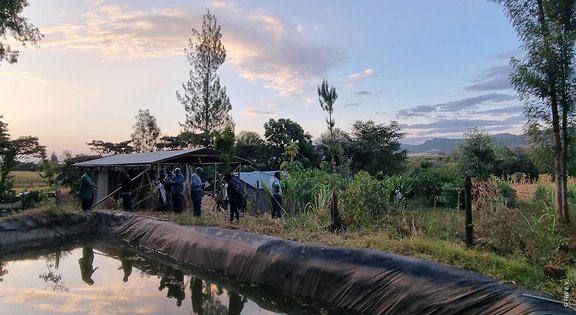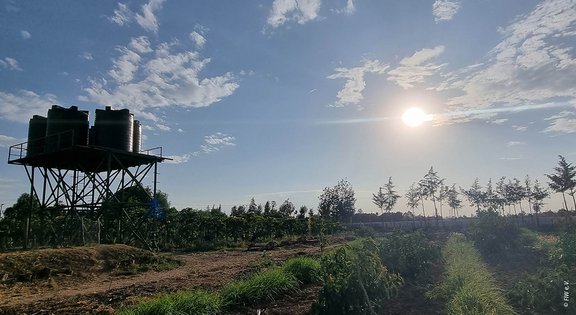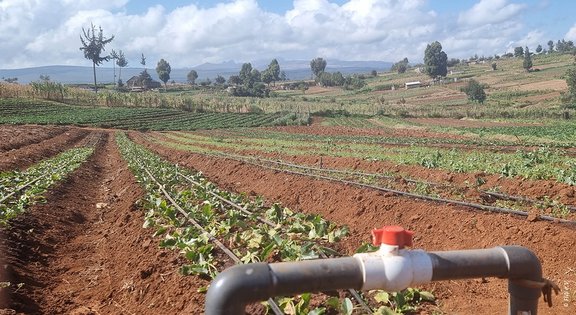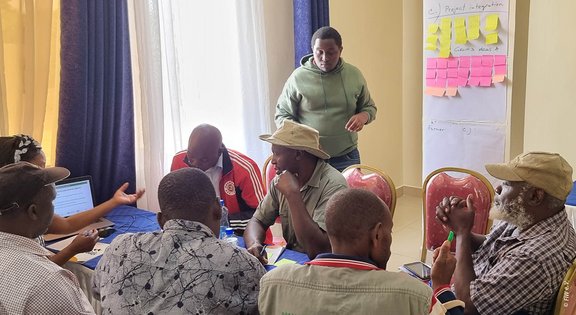Development and Optimization of Solar-Powered Rainwater Irrigation Concepts for Smallholder Farmers in Kenya
A contribution to the "International Research Cooperations for World Nutrition" program of the German Federal Ministry of Food and Agriculture (BMEL)
In collaboration with the project coordinator at the Leibniz Centre for Agricultural Landscape Research (ZALF), PV-Projects Agency, and the Kenyan Jomo Kenyatta University of Agriculture and Technology (JKUAT), FiW aims to develop and optimize integrated concepts for rainwater collection and irrigation to enhance food security for smallholder farmers in the upper Ewaso Ng'iro Basin. The initial phase of the SPIS4FNS project is funded by the German Federal Ministry of Food and Agriculture (BMEL) as part of the "International Research Cooperations for World Nutrition" program.
Intense droughts are increasingly challenging Kenyan smallholder farmers in the Upper Ewaso Ng'iro Basin, threatening the food and nutrition security of the region's population. The SPIS4FNS project, in collaboration with local research institutions and agricultural sector stakeholders, will therefore develop solutions to reduce smallholder farmers' direct dependence on rainfall and scarce groundwater resources. Taking into account economic, social and environmental aspects, the project aims to contribute to increasing the resilience of smallholder farmers engaged in irrigated agriculture.
In order to cope with the increasing variability of precipitation and the associated difficulties in irrigated agriculture, a trend towards the implementation of rainwater harvesting concepts with buffer storage and irrigation technologies among Kenyan farms can already be observed. However, since the planning and implementation of such concepts require financial resources as well as expertise, the dissemination of these technologies has so far been limited almost exclusively to actors with higher revenues, who are often better able to bear the risk of a bad investment. As a result, smallholder farms are often doubly burdened by the adverse effects of climate change, as they have to cope with the price pressure of competition on local markets in addition to the climatic effects.
To sustainably improve the situation of smallholder farmers engaged in irrigation farming in Kenya, FiW and its partners plan to optimize and integrate sustainable low-cost rainwater harvesting and irrigation farming concepts. These concepts will incorporate water-efficient irrigation techniques as well as solar-powered pumps. In addition to reducing the direct dependence on precipitation, this will also contribute to decoupling production costs from the energy market. The overarching goal of the project is to reduce the dependence of smallholder farmers on climate change and the volatility of the global energy market, thereby ensuring long-term livelihoods and contributing to an increase in food and nutrition security in the region."









